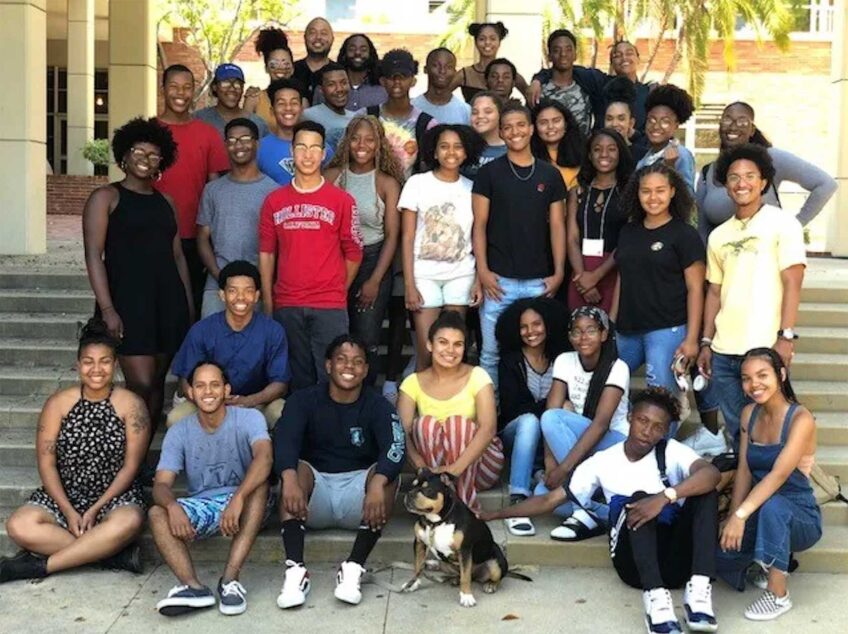
Besides civil rights and civic engagement, the national NAACP convention had on its agenda environmental justice and artificial intelligence, which were featured in topical sessions and draft resolutions presented to delegates.
Five resolutions shined a light on the impact of climate change and disinvestment from environmental justice.
“Black communities are disproportionately impacted by these climate catastrophes that happen,” said Abre’ Conner, the NAACP’s director of environmental and climate justice, in an interview. “We’re seeing this with extreme heat this summer — we’re all experiencing it, but because of disinvestment in infrastructure, neglect in Black and other frontline communities, we’re experiencing it the most within Black communities.”
One resolution, focusing on water infrastructure, tied in with work Conner and other NAACP representatives have been doing in Jackson, Mississippi after a boil-water notice there received national attention.
Conner said she heard from people “from all the different kinds of communities” she met in Jackson that “their entire life they had actually never believed that the water was safe to drink there. That really resonated with me and the fact that you have this majority-Black state capitol, and you have people who have never felt that they can drink tap water.”
The resolution demands the prioritization of safe drinking water in Black communities, better data collection on water issues and increased investment in water testing. In a vote July 31, delegates adopted the resolution nearly unanimously, along with two other environmental resolutions.
The convention also featured an electric Boston Public Schools school bus in The Hub — the event’s exhibition space featuring Black businesses and restaurants, booths related to community health and displays from the NAACP’s ACT-SO competition, including youth science projects.
“This is an opportunity for people to understand that The Hub is a place, of course, for us to integrate culture and entertainment, but also that there are some efforts that affect our everyday lives — like electrifying school buses — that can have a really impactful kind of next step as it relates to Black youth,” Conner said.
In response to concerns about potential bias in artificial intelligence — which can occur when AI software is trained using data sets that don’t include fully diverse representation — delegates at the convention also took up a resolution on government response to artificial intelligence.
“We know that AI can work for good, or it can work to the detriment of our community, so we adopted the resolution outlining those principles, because of concerns about things like bias in learning — but also, some of the uses that can make interaction with consumers and people just objective, [where] it can eliminate bias as well,” said Patrice Willoughby, NAACP senior vice president for global policy and impact.
At a July 30 panel on equity in developing technology, Shireen Santosham, executive director of the Nextdoor Kind Foundation, said efforts to address AI regulation need to happen now, as the technology is developing so quickly.
“It’s going to happen fast, and getting conversations going about raising flags about potential harms, and then building tools also using AI to combat those biases and those challenges — we have that chance right now,” Santosham said.
Willoughby said the resolution on AI is important now because she believes efforts around racial equity at a government level will be carried on to companies in the private sector. Those conversations will, she hopes, help eliminate disparities.
“They have to ask the question, ‘How is this technology going to affect communities of color?’ at every stage, because if they don’t ask the question, and if the algorithms are trained on biased datasets or models, then what comes out of them will be biased and will broaden disparities as opposed to eliminating them,” Willoughby said.
Convention attendees also focused on the intersection of the environment and the economy in a July 29 panel about job opportunities.
“We recognize that we need a workforce that understands and can engage in climate issues,” said Letise LaFeir, the New England Aquarium’s chief conservation and stewardship officer, during the panel. “We need a workforce that is able to get the jobs locally to advance so many different industries … and we know that in order to ensure that the planet survives, that we survive, we need to think about the solutions that the ocean brings in order to curb the impacts of climate change, in order to ensure food security, in order to ensure that we are able to adapt and be resilient.”
Conner said that as the blue and green economy continues to grow, Black communities should be centered in those opportunities, and not just in construction jobs but from the get-go.
“Oftentimes Black folks are involved maybe just at the trades portion. And that is really important, however, you have individuals who should really be a part of — from the very beginning — thinking about, ‘What does the long-term value look like for creating green jobs and the infrastructure within our communities?’” Conner said. “Quite frankly, Black folks are going to be the ones who are going to have to live with the infrastructure that’s actually built.”






